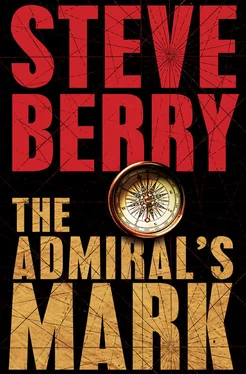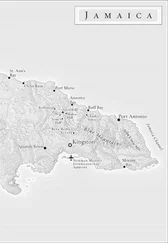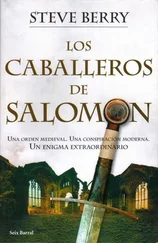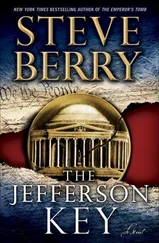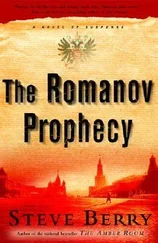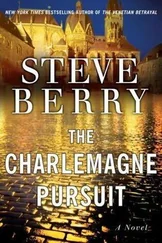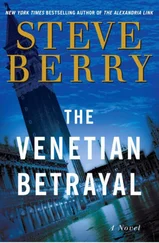Steve Berry - The Admiral's Mark
Здесь есть возможность читать онлайн «Steve Berry - The Admiral's Mark» весь текст электронной книги совершенно бесплатно (целиком полную версию без сокращений). В некоторых случаях можно слушать аудио, скачать через торрент в формате fb2 и присутствует краткое содержание. Год выпуска: 2012, ISBN: 2012, Издательство: Ballantine Books, Жанр: Старинная литература, на английском языке. Описание произведения, (предисловие) а так же отзывы посетителей доступны на портале библиотеки ЛибКат.
- Название:The Admiral's Mark
- Автор:
- Издательство:Ballantine Books
- Жанр:
- Год:2012
- ISBN:9780345534408
- Рейтинг книги:3 / 5. Голосов: 1
-
Избранное:Добавить в избранное
- Отзывы:
-
Ваша оценка:
- 60
- 1
- 2
- 3
- 4
- 5
The Admiral's Mark: краткое содержание, описание и аннотация
Предлагаем к чтению аннотацию, описание, краткое содержание или предисловие (зависит от того, что написал сам автор книги «The Admiral's Mark»). Если вы не нашли необходимую информацию о книге — напишите в комментариях, мы постараемся отыскать её.
The Admiral's Mark — читать онлайн бесплатно полную книгу (весь текст) целиком
Ниже представлен текст книги, разбитый по страницам. Система сохранения места последней прочитанной страницы, позволяет с удобством читать онлайн бесплатно книгу «The Admiral's Mark», без необходимости каждый раз заново искать на чём Вы остановились. Поставьте закладку, и сможете в любой момент перейти на страницу, на которой закончили чтение.
Интервал:
Закладка:
He shook his head. “Why don’t you read them for me.”
“It’s easy.”
The boy jumped up on his chair and held one of the blank sheets to the overhead light. Slowly, brown letters appeared on the paper.
HELLO ALAIN.
Then he knew. Lemon juice. Reacting to the heat of the bulb. “That is an old spy trick. Scotty should not have revealed that to you.”
“It’s a secret?” Violine asked.
“You use it, too?” Alain said as he hopped down. “Scotty said secret agents use this all the time.”
“He was right. We do. All the time. But you can’t tell anyone.”
“Scotty was a good man,” Elise said. “He spent a lot of time with the children. We were so sad when he died.”
He saw that she meant it. Obviously, Scott had forged an ally in Dubois and his family, cementing that with the right words, said at the right time, coupled, most likely, with a liberal sprinkling of money. The Magellan Billet? Interesting Scott had used that as his cover. What kind of con had his brother-in-law been working?
He doubted these people knew.
So he kept his mouth shut and allowed them to continue to think the best.

Malone entered La Villa St-Louis, the hotel located outside Cap-Haïtien, on the coast, inside a stunning building with Spanish and French influences. More upscale than where he was staying, its lush grounds fenced and guarded. The auction was held in a paneled hall that could accommodate a few hundred comfortably. He estimated that fewer than seventy-five were there, many already seated and awaiting the first item. To his right and near the front sat Zachariah Simon. The other man, Rócha, was not in sight. Malone grabbed a chair to the left of the center podium, at the end of an aisle of eight seats.
A copy of the day’s International Herald Tribune lay on the next chair. To make himself less conspicuous, he grabbed the paper and scanned the front page, noticing an article about a Los Angeles Times reporter whose name he knew. Tom Sagan. Caught falsifying a story from the Middle East. Interesting. After an internal investigation, the Times had fired Sagan and apologized for the scandal. Too bad. He’d never thought Sagan the type to lie. His eyes drifted from the newspaper, keeping a watch on what was happening.
More people drifted in.
The auction began and four items were sold, three paintings and a beautiful piece of mahogany furniture, all from the same estate being liquidated. According to the catalog the 16th-century book would be the fifth offering, and it was brought in by a white-gloved attendant, who laid it before the auctioneer.
Bids were called for. Simon wasted no time.
“Five thousand.”
Malone waited to see if anyone else planned to make a bid. Seeing none, he offered his own.
“Six thousand.”
The auctioneer’s eyes raked the crowd and waited.
“Seven thousand” came Simon’s reply.
“Eight,” Malone quickly added.
“Ten.”
A new voice.
From behind.
He turned to see Matt Schwartz, standing, his arm raised to identify himself.
Simon spotted the newcomer, too, then said, “Twelve.”
Malone decided to see how bad the Austrian, and the Israelis, wanted the book. “Fifty thousand.”
Auctioneers were usually noted for their poker faces, but he’d clearly caught this one off guard. The surprise showed, but was quickly suppressed before he asked, “Any more bids?”
“Seventy-five thousand,” Schwartz said.
“One hundred thousand,” Simon countered.
Apparently they both wanted the book. Okay, let’s make it really interesting . “One hundred fifty thousand.”
Silence.
Neither Schwartz nor Simon countered.
The auctioneer waited thirty seconds before asking for any further bids.
No reply.
“Sold.”

Malone accepted the book, nestled safely inside a clear plastic bag, wrapped in brown paper. The $150,000 had been transferred into the auction company’s account, thanks to an online account he’d accessed with the password Stephanie had provided.
She was going to kill him.
He’d just dropped a chunk of public money on a questionable purchase.
But at least he had everyone’s attention.
He exited the hall and, before leaving the hotel, detoured to the bathroom. There he entered one of the stalls, carefully opened the package, and passed the plastic-encased book beneath the divider. A hand grabbed the offering, then another book appeared—a French novel bought before arriving—which Malone stuffed into the brown wrapping. He left the stall and the bathroom. Dubois would wait five minutes then do the same, heading home with their prize.
He knew it would not be long and, just as he exited the hotel and followed a lighted path toward the street, someone called out.
“You paid far too much for that.”
He stopped and turned. “And you are?”
“The man you outbid. Zachariah Simon.”
The older man stepped closer but offered no hand to shake. Good. He’d prefer to wring the SOB’s neck.
Simon motioned to the package. “What’s your interest?”
He shrugged. “I collect books.”
“Why that one?”
“You already know the answer to that question.”
“Yet why do I feel that you do not? Which is interesting.”
“Enlighten me.”
Simon pointed out beyond the palms, toward the ocean and an ever-darkening sky. “Not far from here was the first place Europeans settled in their New World.”
“La Navidad.”
“Ah, I see you are not wholly ignorant. Thirty-nine men left by Columbus to search for gold and make a colony. But none survived a year. Slaughtered by the Tainos for their cruelty toward the natives.”
“A rare victory for the good guys.”
Being a bibliophile also meant he was a reader. He’d read plenty about Columbus and the century after his discovery. Cultures that had existed for many millennia were violently extinguished—hundreds of thousands died—all in the name of religion and fueled by greed.
“Who are you?” Simon asked.
“Harold Earl Malone. But everyone calls me Cotton.”
“Interesting nickname. How did you—”
“Long story.” He motioned with the package. “Why did you want this?”
“What do you know of Christopher Columbus?”
A strange answer to his question. “In 1492 he sailed the ocean blue?”
Simon grimaced. “I am not particularly fond of humor. From your accent, I would say you are from the American South.”
“Georgia boy. Born and raised.”
“That line you quoted,” Simon said. “It is from a poem written to commemorate Columbus Day, which for some reason Americans feel the need to celebrate.”
“I think it’s just an excuse to take a day off from work.”
“That actually might be correct, but the poem is fiction. Nearly nothing in it is true. Yet it has been used for decades as a teaching tool.”
“You don’t sound like a Columbus fan.”
“We know nothing of Christopher Columbus.”
This man clearly wanted to talk, which bothered Malone. He’d expected more action. And where were the Israelis? Nearby? He hoped so. For once he was counting on them.
“His birthplace, his parents, where he was raised, educated. His early life. All of that is unknown,” Simon said. “We don’t even know what Columbus looks like. Every portrait that exists was painted long after he was dead by people who never saw him. If you read many books on him, as I have, you would see that every account conflicts with the others. Columbus himself only added to the mystery, as he barely spoke of himself during his lifetime and the few mentions he did make were not consistent.”
Читать дальшеИнтервал:
Закладка:
Похожие книги на «The Admiral's Mark»
Представляем Вашему вниманию похожие книги на «The Admiral's Mark» списком для выбора. Мы отобрали схожую по названию и смыслу литературу в надежде предоставить читателям больше вариантов отыскать новые, интересные, ещё непрочитанные произведения.
Обсуждение, отзывы о книге «The Admiral's Mark» и просто собственные мнения читателей. Оставьте ваши комментарии, напишите, что Вы думаете о произведении, его смысле или главных героях. Укажите что конкретно понравилось, а что нет, и почему Вы так считаете.
